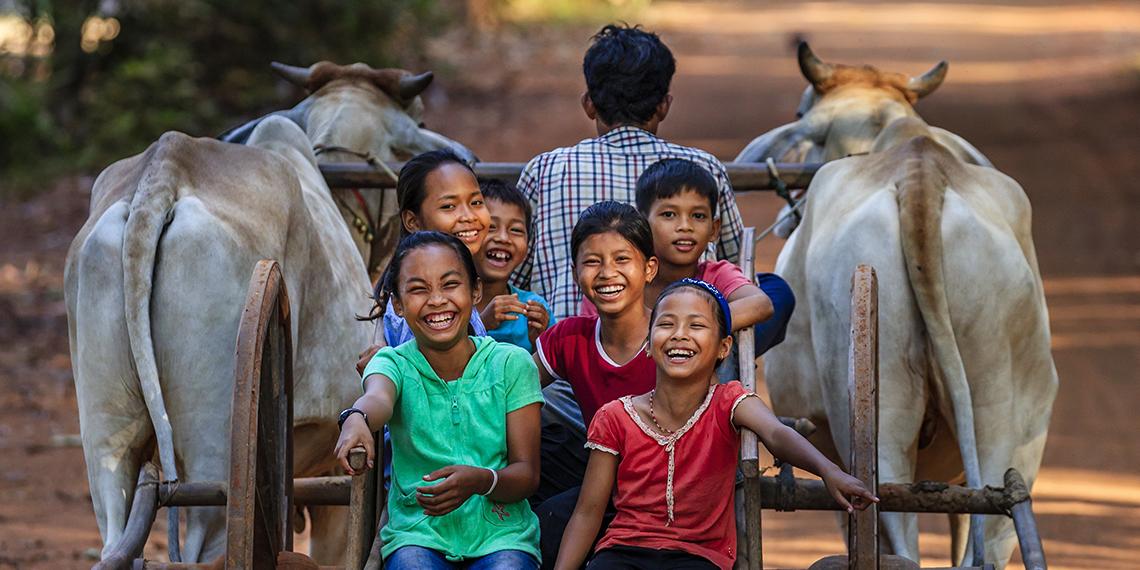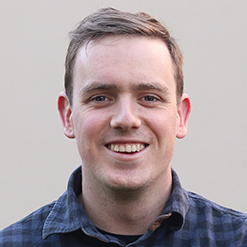You are here
A Cambodian calling

Richard and Kirstie Smith gave up successful careers to work in Cambodia with prisoners and victims of sex trafficking.
As I enter the temporary home of Richard and Kirstie Smith in Paraparaumu, I sense a strong atmosphere of comfort and ease. However, the Wellington-based couple quickly make it clear that a quaint life on the Kapiti Coast is not the one God has called them to.
For the last two and a half years the Smiths have been expressing their faith in Cambodia, working with very different groups of people. Kirstie, a high school teacher by trade, has been managing a Christian aftercare and reintegration project for underage girls rescued from the sex industry. Richard, also a former school teacher, has not only been working in an international school, but running a 12-step programme and recovery church in a local prison.
While Kirstie has a history of mission work in India and Bolivia, Richard says he wasn’t called to the mission field until 2015, ironically at the peak of his career—just prior to being named ‘New Zealand’s most inspiring Teacher’. Working at Wellington’s Wadestown School, Richard beat thousands of other teachers to the national accolade.
Yet, three months later, the couple found themselves on a plane to the city of Siem Reap to engage in mission.
Richard was raised in the Salvation Army, the son of Majors Caroline and Richard Smith. Although he had good head knowledge of Christianity, he says he never truly experienced a ‘real sense of God’s love’. But after 16 years away from the church, one encounter transformed him and he entered back into the faith community.
‘I had one particular day where I felt God completely envelope me in his love,’ recalls Richard.
A recovering nation
With a population roughly three times that of New Zealand, Cambodia has a deeply troubled and violent history. In 1975, the government was overtaken by the Khmer Rouge, a communist party that attempted to turn the nation into a ‘communist agrarian utopia’. Claiming to transform the country into a ‘rural and classless society’, it was, in fact, a brutal and barbaric regime.
The Khmer Rouge set about emptying the cities and forcing people into labour camps where they were starved and abused. Educated citizens and anyone considered to be in opposition was murdered. As a result, between 1.7 and 2 million people died across a four-year period. The Smiths say Cambodia’s education
system is still recovering from this destruction, with few children graduating from high school. ‘You can see the impact of extensive civil war and the Khmer Rouge. The repercussions are still evident,’ Kirstie says.
Despite this, the Smiths say they have encountered real hope in Cambodia. When Richard began a Celebrate Recovery (12 step) programme for English speakers in a prison, many of the men were initially ambivalent or openly dismissive about the power of God. However, some slowly encountered his love and began to experience faith for themselves.
‘Most encouraging of all is to see the guys offering support and ministry to each other through tough times, whether through counsel, prayer, Bible study or pragmatic support,’ Richard says.
‘For example, one guy who had been depressed and sceptical about God, came to accept God’s love for him and found freedom from spiritual oppression. He has embarked on a life of faith and hope, largely due to another guy from the group sharing his faith, supporting him and praying for him. It’s amazing to see this happen in lives that many have written off as being hopeless. There’s hope for all of us.’
‘Working with’ not fixing
The Smiths are now underway with their second stint in Cambodia, partnering with mission organisation Interserve New Zealand. When discussing their approach to sharing Christian faith, Richard and Kirstie make it clear they’re not in Cambodia to be Western saviours. ‘We love the Khmer people. I don’t mean that in a condescending way. We’ve learned a lot from them and we partner with them,’ Richard says. ‘Our work is not fixing Khmer. It’s really working alongside them.’
Kirstie says it’s easy for us in the West to automatically have a patronising mind-set when thinking about developing nations. ‘We think they must be poor, miserable and helpless because of the challenging lives they face. I just want to say it’s not the case at all. They’re a people who know how to have fun in spite of life’s stresses, and humour is an important part of their culture. Many are keen to learn and want to find solutions to the difficulties they face—they are definitely not helpless.’
Kirstie says one of the biggest things she learned is not to adopt the idea that ‘people are miserable and we need to save them’.
‘We need to actually capitalise on the fact that people have hope and competence, but we can assist them to develop that hope into the fullness of what it can be.’
Ultimate hope
During the first six months of the Smiths’ return to Cambodia, they will continue to learn the national language of Khmer, in the capital Phnom Penh. They then plan to return to Siem Reap where Kirstie will begin new work among vulnerable families, with a focus on intervention and prevention.
She emphasises her ultimate hope that the girls she works with will experience God’s love and transformation. ‘Ultimately in order to see healing from the wounds that have resulted from the struggles these girls have been through, they really need to encounter God’s love—and experience transformation through Christ.
‘My plea to Kiwi believers is for them to feel burdened to get on their knees for the souls and spirits of these girls, that Christ might impact their lives. The mess and the damage that comes from sexual abuse of any description is immense and requires the deep healing of Christ,’ reflects Kirstie.
The Smiths recently spent six months in New Zealand raising support, but now say they’re at 95 percent of their budget. While this has been a time of trusting God, Richard says he doesn’t mind asking for financial support because it’s ‘really not our mission work’.
‘It belongs to the whole body of Christ. Our ministry is just one way of putting into action God’s justice and mercy.’
To support Richard and Kirstie, go to: www.givealittle.co.nz/cause/help-richard-and-kirstie-upskill-cambodian
Or email Interserve New Zealand: talk2us@interserve.org.nz
(c) by Hugh Collins - 'War Cry' magazine, 23 February 2019 p14-15. You can read 'War Cry' at your nearest Salvation Army church or centre, or subscribe through Salvationist Resources.
